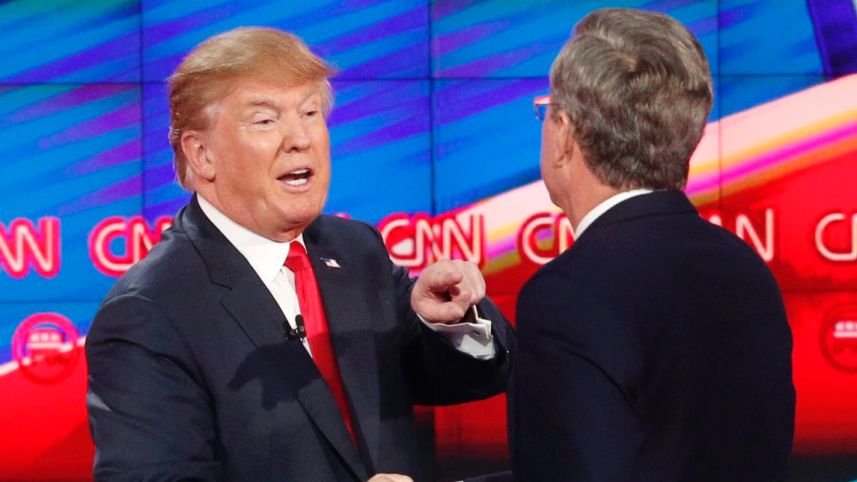When the media affects the message
Republican debates reveal how media presence impacts politics
On September 26th, 1960, 70 million Americans tuned in to see Richard Nixon and John F. Kennedy face off in the first televised presidential debate. As the two candidates exchanged their positions on topics such as the Cold War and civil rights, the nation watched as the young, energetic JFK dominated the stage with his charismatic personality.
On December 15th, 2015, 18 million Americans tuned in to see nine Republican presidential candidates, including charismatic businessman Donald Trump and former neurosurgeon Ben Carson, engage in their party’s fifth debate leading up to primary election season. As candidates traded personal attacks with each other, the nation turned to their smartphones and live-tweeted the night’s highlights, including Donald Trump’s charging that “nobody cares about [Jeb Bush’s] campaign. It’s been a total disaster and no one cares.”
As candidates from both parties desperately attempt to gain the support of the American public ahead of the 2016 presidential election, still almost a year away, both the money and the insults have started flying rapidly between contenders on the debate stage as well as on the campaign trail. And while American politics has never been the best example of civility (see: Alexander Hamilton and Aaron Burr dueling to the death), recent political debates have showcased childish behavior between participants, with personal, petty arguments taking place on stage in front of 18 million Americans who are watching as much as for entertainment value than to get a grasp of where the candidates stand on issues.
The December 15th debate was a perfect example of petty arguments, with Marco Rubio fighting with Ted Cruz and Donald Trump sparring with Jeb Bush at different times during the night. Not that this was much different than the four previous Republican debates, which were essentially two hour long roasts of Donald Trump with bits of policy positions thrown in occasionally. This contrasts with the relatively tame Democratic debates, which have, realistically, been between Hillary Clinton and Bernie Sanders (with three other lower polling candidates thrown in to the mix but rarely allowed to speak) and have focused on highlighting the ideological differences between the two candidates. That’s not to say that the Democratic debates are perfect; they’re not, and Sanders and Clinton have done their fair share of opponent bashing. However, the comparison to the Republican Party’s nine-candidate, four-moderator, three hour long debates is stark, and it reveals the problem behind not only the Republican debates, but politics as a whole.
Politics has always been about who can gain the most attention from the American public. But this cycle’s debates seem set up with the main goal of attaining high ratings, a goal that is often achieved. To reach this goal, the moderators often ask questions that are intended to set up arguments on stage. The October 28th Republican debate saw the media bashing in full force, with Ted Cruz, among others, declaring that “the questions that have been asked so far in this debate illustrate why the American public don’t trust the media.” And while Cruz may have just been trying to save himself from having to answer fair yet pointed questions, the truth behind these anti-media claims is undeniable: when questions asked to candidates are along the lines of “should the American people trust [insert name of opponent here],” it’s hard to argue that the questions aren’t set up to produce vituperative responses.
The media, for its part, is doing nothing but appealing to the public, who love a good shouting match between people who probably shouldn’t be engaged in a shouting match. But as the main source of information for the American public, a populace that increasingly reads their Facebook feeds as if it was the morning paper, the media has a responsibility to inform the nation on the topics that impact daily life. As the number of people in the presidential race mercifully dwindles, maybe televised political debates will turn into what a debate should be: an open discussion on policy issues between two people who care about making America better.


